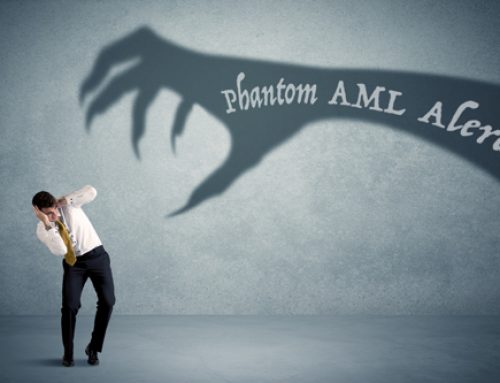 Recently, our firm participated in an NCUA-sponsored workshop devoted to the Bank Secrecy Act. This event was immensely popular, attracting some 2,000 attendees. Of course, with that many in attendance, it was impossible to get to all the questions that were asked. Hence, we’ve decided to group the most popular questions into five representative questions and give our response.
Recently, our firm participated in an NCUA-sponsored workshop devoted to the Bank Secrecy Act. This event was immensely popular, attracting some 2,000 attendees. Of course, with that many in attendance, it was impossible to get to all the questions that were asked. Hence, we’ve decided to group the most popular questions into five representative questions and give our response.
Presenting, without further ado, the five most popular types of questions received after the NCUA BSA Workshop.
-
If an individual originates a cash transaction on a non-business day (Sunday) with an effective date of the next business day (Monday), and then makes another cash transaction on Monday—and aggregated together they are over 10K—do you file a CTR?
Answer: 31 CFR Section §1010.313(b), “Reports of transactions in currency,” indicates the following:
“Deposits made at night or over a weekend or holiday shall be treated as if received on the next business day following the deposit.”
Generally, if transactions post on the same day, they are considered to have been made on the same day and require a CTR if over the reporting limit. The reverse is also true: If they do not post on the same day, they are not considered to have been made on the same day. In this regard, institutions should refer to FinCEN Rulings FIN-2001-R002 and FIN-2012-G001 for more guidance.
-
Is a CTR needed for transactions made in one day, conducted by one person, involving three different accounts at the same institution, and totaling $10K or more?*
Answer: All individual transactions that the FI has knowledge of being conducted by or on behalf of the same person during a single day must be aggregated. If the different accounts are all related to the same person (savings, checking, etc.), then they must be aggregated. Multiple transactions in currency must be treated as a single transaction. Institutions should refer to FinCEN Rulings FIN-2001-R002 and FIN-2012-G001 for further guidance.
-
I thought the number of days to report continuing activity changed from 90 days to 120 days back in 2012. Is it 90 days or 120 days for continuation SARs?
Answer: There has been much confusion on this change. FinCEN provided clarifying guidance on this question in Section 4 (Page 53) of SAR Activity Review Trends, Tips & Issues #21. The guidance states “Financial institutions with SAR requirements may file SARs for continuing activity after a 90-day review with the filing deadline being 120 days after the date of the previously related SAR filing. Financial institutions may also file SARs on continuing activity earlier than the 120-day deadline if the institution believes the activity warrants earlier review by law enforcement.”
In effect, the timeline would be:
- Day 0: Activity discovered
- Day 30: Deadline for initial SAR filing
- Day 120: End of 90-day review and continuing SAR filing
-
Could you clarify the monetary instruments requirement? My understanding is that this applies to a cash sale. Therefore, if the customer/member has money in his account and gets a cashier’s check, this is NOT an item that would be on the log. Is that correct?
Answer: FinCEN takes the position that when a customer/member purchases a monetary instrument in amounts between $3,000 and $10,000 using currency that the member first deposits into their account, the transaction is still subject to the recordkeeping requirements of 31 CFR 1010.415. This requirement applies whether the transaction is conducted in accordance with a financial institution’s established policy or at the request of the member. Although allowing customers to deposit cash first in order to buy a monetary instrument is acceptable, doing so makes monitoring transactions for suspicious activity more difficult. This is not to be confused with the situation where a customer simply makes a purchase from their account with funds that have been on deposit for some time. In this situation, the purchase does not need to be recorded on the log.
-
Do non-depository lenders need to be concerned with filing a CTR?
Answer: Yes. BSA has a broad application for almost all financial institutions including non-depository institutions. Basically, BSA applies to any person or organization that deals with financial transactions, such as investments, loans, and deposits and is chartered by or operating within the United States. This includes all banks, trust companies, insurance companies, credit unions, investment dealers, brokers, money service businesses, and casinos. Check the FinCEN website for more details on this subject.
Hopefully this may help with your questions regarding BSA. However, there are so many aspects of BSA compliance that can’t be covered in answers to the five most common BSA questions. AffirmX offers our BSA Independent Report that can assess your institution’s current level of compliance with this regulation. We invite you to contact us for more information.
*CTR filings involving either aggregated and/or multiple transactions (FinCEN has defines these differently) always come down to whether the institution has knowledge that all the individual transactions are being conducted by or on behalf of the same person during a single day. This is established either by the same conductor and/or by the relationship between accounts (ownership or control). The question was about aggregating accounts so I focused on the different accounts being connected. The CTR should check the Aggregated box in this example. However, you can file a CTR on the conductor who is making multiple transactions to apparently unrelated accounts. This situation is more significant because it may be indicative of suspicious activity and warrant monitoring. There are exceptions to filing on the conductor in cases of armor car services or couriers. See FIN-2013-R001.




